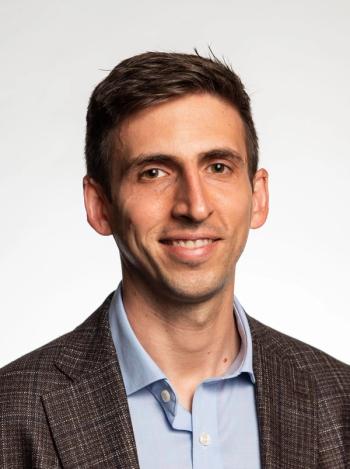
Eratosthenes and measuring the Earth’s circumference: Its implications for healthcare innovationi
Creative thinking can change everything.
As a medical student I was focused on listening to lectures, reading, memorization, and the ability to recall my learning. I used acronyms and mnemonics to remember the 12 cranial nerves, the acronym RICE (rest, ice, compress, elevation) for the treatment of sprains, or bones of the wrist (Some Lovers Try Positions That They Can't Handle). As a result of this educational philosophy of rote learning and memorization, there is little room for creativity in a medical student’s early career. I still recall watching Robin Williams in Patch Adams, which is a true story of a heroic man, Hunter "Patch" Adams, determined to become a medical doctor because he enjoys helping people. However, he ventured where no doctor in his training program had ventured before, using humor and pathos or inserting creativity in his interaction with his patients. This behavior was unacceptable to the establishment and he ran afoul of the faculty of the medical school. So,
Let me relate a game changing story of creative thinking with the readers of this blog. During the third century BCE, (nearly 2000 years before Columbus) the Greek astronomer and mathematician Eratosthenes made the observation that the sun on the summer solstice (June 21) was directly overhead in the town of Syene (now known as Aswan), Egypt, and when Eratosthenes looked into the well on that day, he noted the absence of a shadow in the well. However, North of Syene, in Alexandria, the sun always casts a shadow from the town tower, even on the summer solstice. This very astute observer believed he could use the sun’s angle in Alexandria and the known distance between the two cities to calculate the Earth’s circumference. He was amazingly accurate with his calculation and was within 50 miles of the 24,902 miles\40,000 Km circumference of the earth!
Okay, what does this story have to do with creativity in
What are some examples of creative thinking in healthcare? In 1895 Wilhelm Roentgen observed an image of his wife’s hand and ring on photographic plate. One year later, 1896, X-rays were being utilized clinically in the United States for evaluating bone fractures and gunshot wounds.
Alexander Fleming on returning from a vacation in 1928 observed that one Petri dish was contaminated with a fungus, and that the colonies of staphylococci immediately surrounding the fungus had been destroyed. The rest of the story was the discovery of penicillin which changed the course of medicine in the 20th Century.
A lesser known example of creativity is the work of Dr. Morton Creditor who reported in 1992 that bedrest leads to muscle breakdown of approximately 2% per day. Thus came the paradigm shift from using bedrest to treat patients with a number of multiple medical conditions specifically myocardial infarction. After making this observation, patients are encouraged to become ambulatory instead of being placed at bedrest and post-op patients such as hip and knee replacement are now encouraged to be out of bed on the first day of surgery.
Another contemporary example is caring for intensive care unit patients at home. Dr. David Levine from Harvard has published results of 9 patients with exacerbation of heart failure, chronic obstructive pulmonary disease, or asthma who were assigned to home health care which included nurse and physician home visits, intravenous medications, continuous monitoring, and video communication compared to a control group of 11 patients who were admitted to the ICU. Results demonstrated “home-hospitalization” compared to in-hospital ICU care significantly reduced costs and improved physical activity of the patients. Comparing the two groups, there was no significant differences in quality, safety, and patient experiences noted. Dr. Levine is a doctor who looked into the well and found a creative way to reduce healthcare costs and preserve quality and patient satisfaction.
An example of creative problem solving from my practice occurred when I observed that nearly every day my practice had 1-2 patients who had urgencies and\or emergencies who required to be seen quickly. Rather than tell them to come in and create a delay with patients who had scheduled appointments, a 15-minute segment was created at the end of each morning and the middle of every afternoon in order to see those patients who needed same day appointments. This solution allowed me to see scheduled patients on time and yet accommodate several patients that needed to be seen quickly.
Bottom Line: I’d like to end with a quote from Albert Einstein: “imagination is more important than knowledge. ”So let me ask you, what well are you looking into that is making the delivery of medical care better and\or decreasing the cost of healthcare?
Newsletter
Optimize your practice with the Physicians Practice newsletter, offering management pearls, leadership tips, and business strategies tailored for practice administrators and physicians of any specialty.






